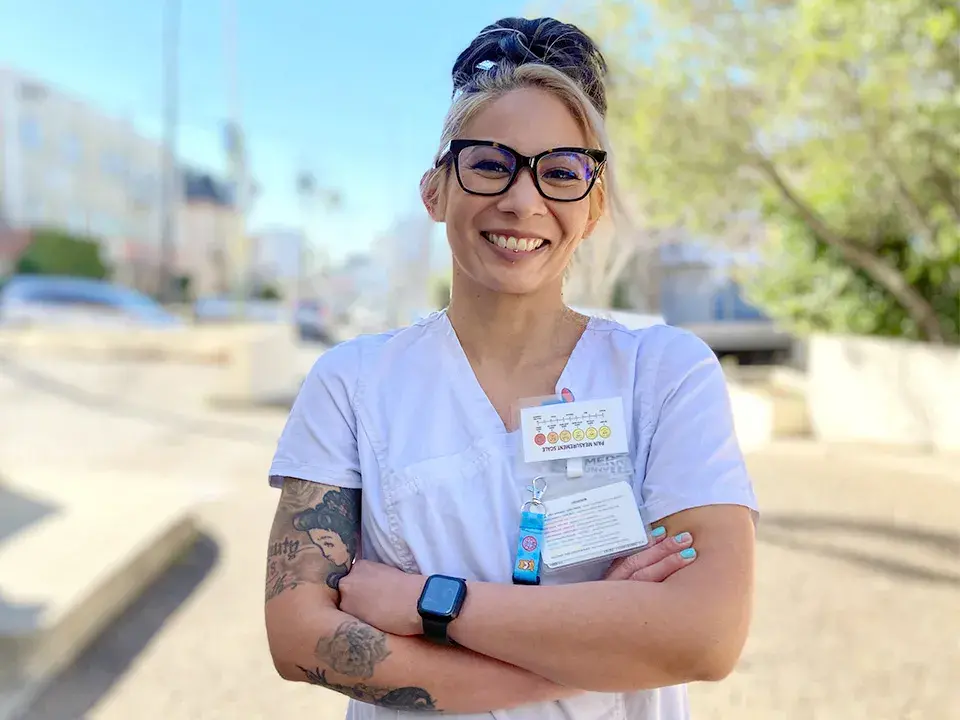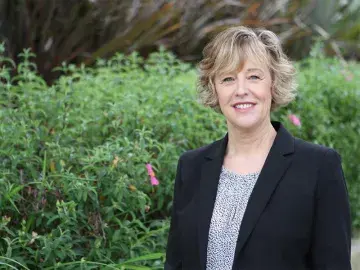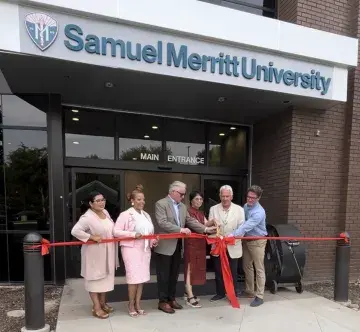Why BSN Student Lisa Rangel Joined the New Public Health Certificate Program

Lisa Rangel, BSN ’22, Public Health Certificate ’22, is just a few months away from a career in public service and healthcare. In May, she’ll graduate from the Bachelor of Science in Nursing program. She’ll also graduate from the inaugural class of the University’s new Public Health Certificate course, an add-on that students can choose to bolster their careers.
Lisa came to healthcare after a career as a visual merchandiser in the fashion industry. The role left her feeling unfulfilled. We asked Lisa, who’s hoping to land a job in an ICU or emergency department, how she sees the public health certificate enhancing her education and future nursing career.
What inspired you to become a public health nurse?
My father comes from a disadvantaged background. He was a first-generation Mexican American whose mother was an undocumented immigrant. I saw him treated differently by many healthcare providers when he needed treatment for a chronic illness and again when I was advocating for his care at the end of his life. I’ve also experienced some of that myself as a minority woman, where providers made wrong assumptions about my behaviors, education level, or the languages I spoke, instead of actually listening to me. It made me realize that we’re not all treated the same in healthcare settings, but we all deserve the same care, health education, and respect for our cultures, beliefs, and values.
How will your patients benefit from your public health education?
I want to help patients learn about their health and educate them so they can make educated lifestyle choices. On social media right now, there’s so much misinformation and politicizing about the virus and vaccines. I want to correct what they’re reading and explain things in layman’s terms they understand.
There’s a mistrust of healthcare providers that comes from various places, but the bottom line is that it’s impacting people’s willingness to get vaccines—COVID-19; flu; measles, mumps, and rubella—or even wellness checkups. We have an opportunity to change that, and it’s a driving force behind my interest in public health.
Talking to patients, and really listening to them, opens up conversations and educational opportunities about preventative health, finding the root cause of their illnesses, and not only assessing their bodies but also their home and work environments. When public health nurses start these conversations and treat our patients holistically, we can improve outcomes by preventing illness, increasing lifespan, and hopefully even changing patients’ perceptions of healthcare.
What do you appreciate most about the Public Health Certificate program?
It’s an online program where I feel I’m getting the same robust education I would in person. The online courses are self-paced, and they are so rich in content. The professors give engaging recorded lectures, and we have group projects and interesting discussions. The public health students are nurses, or physical therapists, or have other specialties, so we all bring different perspectives to our conversations.
What drew you to SMU?
Samuel Merritt’s mission is very aligned with my personal mission. It’s very active in the community and very big on social justice. I want to help disadvantaged and marginalized communities, and Samuel Merritt will teach me how to do that.


